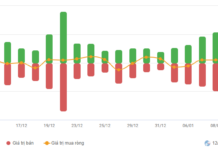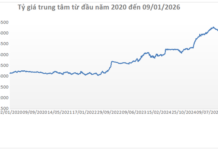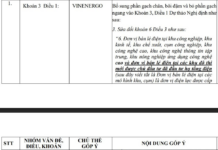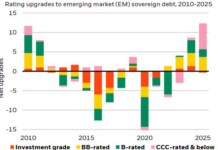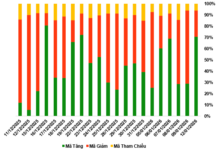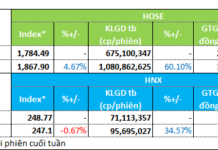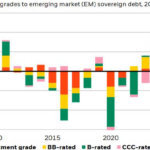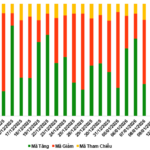In a draft resolution, Vietnam’s National Assembly outlines mechanisms and policies to address challenges in implementing the 2024 Land Law. The Ministry of Agriculture and Environment proposes changes to the 5-year land use planning process (2026-2030).
Specifically, Article 3, Clause 1 of the draft resolution suggests eliminating the 5-year land use planning for major cities, district-level land use plans, annual district-level land use plans, and commune-level land use plans.
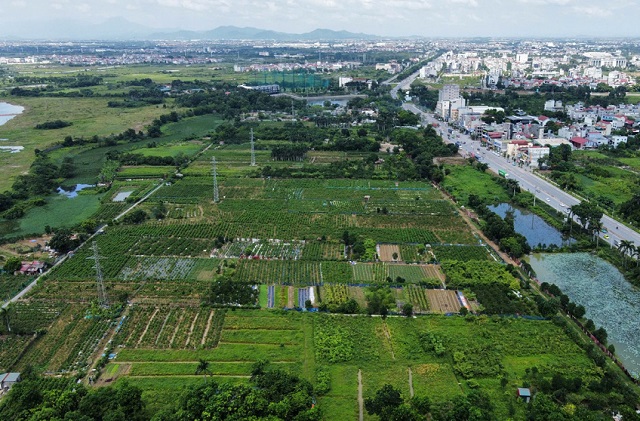 The Ministry of Agriculture and Environment proposes discontinuing the 5-year land use planning (2026-2030) for major cities.
|
Commune-level land use plans will be based on provincial planning targets allocated to administrative units or urban and rural planning regulations. These plans will span a 5-year period.
The draft stipulates that commune-level land use plans will serve as the basis for land reclamation, allocation, leasing, and purpose conversion decisions. They will also govern land use auctions, forest allocation, leasing, and purpose conversion, replacing the annual district-level land use plans outlined in Articles 80, 116, 125, and 248 of the 2024 Land Law.
The Government will detail the processes for drafting, evaluating, approving, reviewing, adjusting, and implementing land use planning and plans.
The Ministry of Agriculture and Environment cites Resolution No. 69-NQ/TW and alignment with two-tier local governments as reasons for these proposals.
Additionally, the proposals aim to encourage urban and rural planning compliance, ensuring a unified, stable, and long-term land management system nationwide. This will streamline investment project implementation, reduce administrative procedures and compliance costs, and help localities simplify processes, unlock land resources, and accelerate land access for businesses.
For centrally governed cities, the Ministry notes that the 2024 Land Law’s Article 65, Clause 5 exempts cities with approved master plans from provincial land use planning, allowing them to base provincial land use plans on these master plans.
Currently, provinces and cities are adjusting their 2021-2030 plans with a 2050 vision under the Planning Law. The approval timelines for these adjustments and the 5-year land use plans (2026-2030) coincide, and the adjusted plans already include land use targets for economic and social development.
“Therefore, avoiding the 5-year land use planning (2026-2030) for cities will prevent resource wastage,” the Ministry’s draft proposal emphasizes.
Phan Thiên
– 06:08 07/10/2025
Proposed Abolition of the 5-Year Land Use Plan for Centrally Governed Cities
The Ministry of Agriculture and Environment has proposed discontinuing the five-year land use planning (2026-2030) for centrally governed cities to prevent the inefficient allocation of investment resources.
Revolutionary Land Price Table Construction Changes Effective January 1, 2026
Under the new regulations, the process and procedures for establishing land price lists at the provincial level, to be announced and applied from January 1, 2026, will follow a 16-step sequence. The authority to determine land prices has shifted from the Provincial People’s Committee (UBND) to the Provincial People’s Council (HĐND).
Streamlining Agricultural and Environmental Business Procedures: Cutting Red Tape, Simplifying Processes
With the new scheme, there is a focus on reducing and streamlining administrative procedures related to production and business operations across 13 sectors. This also includes the reduction and simplification of investment and business conditions in 36 sectors, specifically for regulated industries in agriculture and the environment.
The Premier Unveils the Merger Plan for the Ministry of Agriculture and the Ministry of Natural Resources
Prime Minister Pham Minh Chinh has announced that the proposed merger of the Ministry of Agriculture and Rural Development with the Ministry of Natural Resources and Environment will be discussed at the Central Committee meeting in January 2025. If approved, the merger will then be put forward to the National Assembly for ratification in February 2025, with the official merger taking place thereafter.

